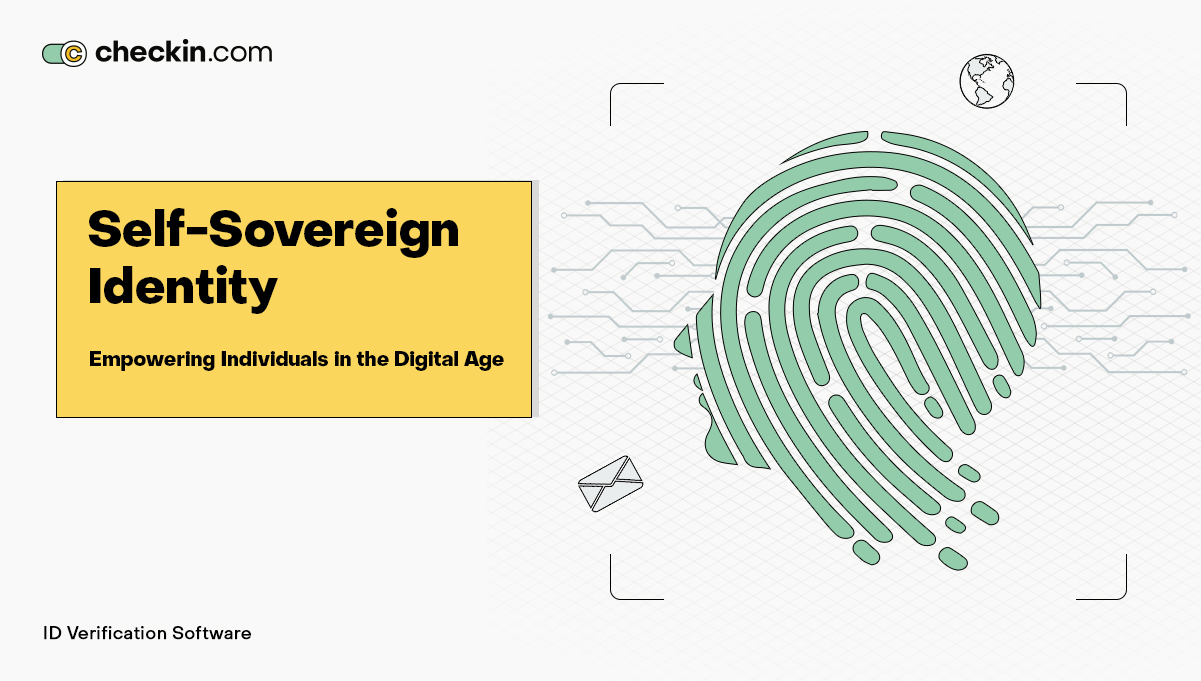
Self-Sovereign Identity: Empowering Individuals in the Digital Age
19 Apr 2023
In an era where digital interactions shape our daily lives, having the authority to govern our personal data is crucial. Stepping into this scenario is the concept of self-sovereign identity (SSI), a transformative approach to identity verification that champions personal data privacy.
Decoding Self-Sovereign Identity (SSI)
This innovative approach offers individuals an unparalleled level of autonomy over their personal data.
In essence, SSI is an identity system that enables individuals to validate their identity attributes, decide whom they share these attributes with, and establish the circumstances under which this sharing occurs. But why is SSI becoming the talk of the town in the world of identity verification?
The Draw of Self-Sovereign Identity
SSI offers several attractive features that address some of the most pressing concerns of our digital society. Let’s delve into why SSI is fast gaining attention.
- Enhanced Privacy: Traditional identity verification often requires oversharing of personal information, potentially putting privacy at risk. SSI turns this on its head by allowing users to share only the minimum required data, thereby protecting their privacy to the maximum extent possible.
- Increased Security: Large, centralized databases holding personal information are hot targets for cyber-attacks. With SSI, identity data is decentralized, significantly lowering the risk of massive data breaches.
- Greater Autonomy: SSI bestows individuals with the power to grant or revoke access to their data, marking a departure from corporate or government oversight of personal information.
Addressing the Challenges of SSI Implementation
While SSI promises significant advancements in digital identity management, it is not without its challenges.
First, there’s the need for universally accepted standards for SSI. Without these, we risk creating a fragmented landscape where SSI systems lack compatibility with each other. This would severely impact the user experience and adoption rate.
Secondly, the legal standing of SSI is a gray area that needs clarity. In cases of disputes over identity attribute verification, the absence of a legal framework poses a challenge. Who would be held accountable? What would be the procedure for resolving such disputes? These questions need to be addressed for SSI to move forward.
Lastly, there’s the hurdle of public acceptance. While many would welcome the increased control over their data, others might see the responsibility as overwhelming. Winning public confidence and acceptance is paramount for SSI to become mainstream.
Shaping the Future
As we navigate the challenges, the future of SSI looks promising. It represents a significant shift in our understanding of personal data control and has the potential to radically transform our digital interactions.
SSI isn’t just about better data privacy or security; it’s about empowering individuals in the digital world. As our online and offline lives become more intertwined, this sense of empowerment becomes increasingly crucial.
SSI might be the key to a future where individuals can truly own their digital identities.
Making the Most of Self-Sovereign Identity
As we delve further into SSI, it’s important to consider the broader implications of this revolutionary approach to id verification service. With self-sovereign identity, we’re no longer passive participants in the digital realm, but active agents shaping our online experiences.
SSI is the beginning of a new chapter in digital empowerment, opening doors to a future where we can navigate the digital landscape confidently, securely, and independently.
As more individuals, corporations, and governments recognize and address the challenges of SSI, we move closer to this reality. So, it’s not a question of whether we will fully embrace self-sovereign identity, but when. Are we ready to redefine the parameters of our digital world?
Conclusion
The idea of self-sovereign identity holds immense potential to transform the digital landscape and our place within it. As we progress, adapt, and overcome the challenges, we may witness a profound shift in our digital interactions.
This shift would place individuals firmly at the helm, marking a new era of personal, secure, and private digital engagements. The self-sovereign identity revolution is here.
FAQ
What exactly is Self-Sovereign Identity (SSI)?
SSI is a digital identity concept that allows individuals to own, control, and manage their personal data. They can verify their identity attributes, decide who they share this data with, and set the terms for such sharing.
Why is SSI beneficial?
SSI enhances personal data privacy, increases data security, and provides individuals with greater autonomy over their data, thereby offering a sense of empowerment in the digital world.
What are the key challenges to the adoption of SSI?
The main challenges include establishing universally accepted standards, addressing legal issues, and gaining public acceptance and trust.